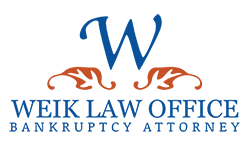GET HELP TODAY

Chapter 7 bankruptcy refers to the liquidation of assets to discharge most of an individual’s unsecured debt, including credit cards and personal loans. Individuals who filed for Chapter 7 bankruptcy in Raleigh are able to keep most of their assets and regain control over their finances within three to four months.
If you have consulted with your attorney about your financial situation, then you already know that filing for bankruptcy is the best legal solution to your situation. Here is what you can expect throughout the process.
Things to Know Before Filing for Chapter 7
To file for bankruptcy, debtors must first learn how it works and what it entails. Here are some of the most important things you should know before filing for Chapter 7 bankruptcy:
- To qualify for Chapter 7, certain conditions must be met.
Petitioners must earn less than the state median income to be eligible for Chapter 7 bankruptcy.They must submit to a “means test” for an examination of their financial records.The means test was designed by Congress to keep high wage earners from taking advantage of Chapter 7. An individual’s eligibility depends largely on the current monthly income calculated through this test. - Filing for Chapter 7 does not eliminate your business debts.
Businesses are considered as separate entities. As such, filing for Chapter 7 can only wipe out an individual’s liability for business debts that he or she owes personally. - Chapter 7 bankruptcy can stay on your credit record for seven to ten years.
It is important to note that discharged debt drops off a credit record only after seven to ten years. Fret not, however. The items on your credit report associated with bankruptcy will have less impact on your credit score as years pass by. Once these items start disappearing, you may see a bigger boost in your credit score.
To acquire a better understanding of your financial situation, it is best to consult with a bankruptcy lawyer in Raleigh. - In Chapter 7 bankruptcy, the court may consider the debtor’s property as a possible means for paying back creditors.
Non-exempt assets can be anything from cars, second homes, valuable family heirlooms, collections, and other investments. Any good consultation with trusted bankruptcy lawyers in Raleigh, NC will focus on how to discharge your debts and protect your assets.
Alternatives to Chapter 7
If you do not qualify for Chapter 7 bankruptcy, there are still several relief alternatives to address your current financial difficulties.
- Debtors who are engaged in businesses, such as partnerships and corporations, may file for a petition under Chapter 11 of the Bankruptcy Code. Under this chapter, petitioners may seek an adjustment of their debts by extending the repayment plan or reducing the amount of debt.
- Sole proprietorships may be eligible for relief under Chapter 13.
- If you are an individual debtor with a regular income, you may file for Chapter 13 bankruptcy. Under this chapter, you may develop a repayment plan to pay off your creditors.
Speak to a Bankruptcy Lawyer! Every law office will have a different process in tackling petitions for Chapter 7 bankruptcy in Raleigh. To know if Chapter 7 can work for your particular situation, call Weik Law Office at 919-845-7877 for a free consultation and set up a time to speak with one of our professionals.
